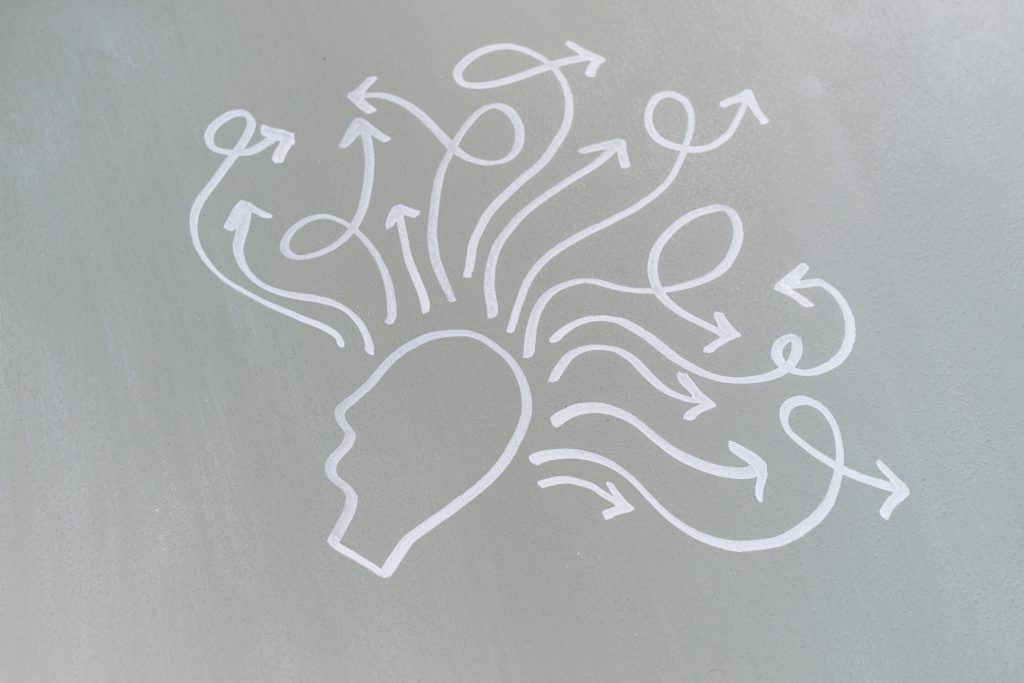ADHD is a neurodevelopmental disorder that affects millions of individuals across the world. It is characterized by symptoms of inattention, impulsivity, and hyperactivity, which can cause significant problems in daily life. Impulse control disorders, on the other hand, are characterized by a failure to resist temptation and an inability to control one’s actions. Although ADHD and impulse control disorders are distinct conditions, they are often co-occurring and can significantly impact a person’s quality of life. In this article, we will discuss the causes, symptoms, and treatment options for both ADHD and impulse control disorders.
What is Attention Deficit Hyperactivity Disorder (ADHD)?
ADHD is a disorder that is caused by a combination of genetic, environmental, and neurological factors. It is characterized by a persistent pattern of inattention, hyperactivity, and impulsivity that interferes with daily life. Individuals with ADHD may struggle with completing tasks, staying organized, and paying attention, which can result in difficulties in school, work, and personal relationships.
Symptoms of ADHD
The symptoms of ADHD can vary from person to person, but they typically fall into three categories: inattention, hyperactivity, and impulsivity.
Inattention symptoms
- Difficulty paying attention to details
- Struggling to follow through on instructions
- Easily distracted by surroundings
- Frequently losing things
- Difficulty organizing tasks and activities
Hyperactivity symptoms
- Fidgeting or squirming in their seat
- Difficulty sitting still
- Excessive talking
- Restlessness and feeling on the go
Impulsivity symptoms
- Acting without thinking
- Interrupting others in conversation
- Difficulty waiting their turn
Causes of ADHD
The exact cause of ADHD is unknown, but it is believed to be a result of a combination of genetic, environmental, and neurological factors. Research has suggested that ADHD may be inherited, and that certain genes may increase a person’s risk of developing the disorder. Environmental factors, such as exposure to toxins during pregnancy or a traumatic brain injury, may also play a role in the development of ADHD. Additionally, abnormalities in the brain’s structure and function have also been implicated in the development of ADHD.
Diagnosis of ADHD
ADHD is diagnosed by a mental health professional based on a thorough evaluation of the individual’s symptoms, medical history, and behavior. The mental health professional may also conduct a physical examination, laboratory tests, and imaging studies to rule out other possible causes of the symptoms. In order to be diagnosed with ADHD, the symptoms must be present for at least six months and cause significant impairment in multiple areas of life.
Treatment for ADHD
Treatment for ADHD typically involves a combination of medication, behavioral therapy, and lifestyle changes. Medications, such as stimulants, are commonly used to help manage the symptoms of ADHD, while behavioral therapy can help individuals with ADHD develop coping skills and improve their interpersonal relationships. Lifestyle changes, such as regular exercise, a healthy diet, and good sleep habits, can also help to manage the symptoms of ADHD.
What are Impulse Control Disorders?
Impulse control disorders are a group of conditions that are characterized by a failure to resist temptation and an inability to control one’s actions. Individuals with impulse control disorders may engage in impulsive behaviors that can cause significant harm to themselves or others, such as gambling, sexual promiscuity, or substance abuse.
Symptoms of Impulse Control Disorders
The symptoms of impulse control disorders can vary depending on the specific condition, but they typically involve engaging in impulsive behaviors that are difficult to control and cause significant problems in daily life. Some common symptoms of impulse control disorders include:
Compulsive gambling
- Persistent thoughts about gambling
- An intense urge to gamble
- Engaging in high-risk behavior to finance gambling
- Continuing to gamble despite negative consequences
Intermittent explosive disorder
- Impulsive outbursts of anger or violence
- Lashing out physically or verbally at others
- Difficulty controlling temper
- Feeling regret or remorse after an outburst
Kleptomania
- Strong urge to steal objects
- Stealing items that are not needed for personal use or financial gain
- Difficulty controlling the impulse to steal
- Feeling guilty or ashamed after stealing
Causes of Impulse Control Disorders
Like ADHD, the exact cause of impulse control disorders is unknown, but it is believed to be a result of a combination of genetic, environmental, and neurological factors. Impulse control disorders may be related to imbalances in the brain’s neurotransmitters, such as dopamine, which are responsible for regulating mood and behavior. Environmental factors, such as stress and trauma, may also play a role in the development of impulse control disorders.
Diagnosis of Impulse Control Disorders
Diagnosis of impulse control disorders is typically made by a mental health professional based on a thorough evaluation of the individual’s symptoms, medical history, and behavior. The mental health professional may also conduct a physical examination, laboratory tests, and imaging studies to rule out other possible causes of the symptoms. In order to be diagnosed with an impulse control disorder, the symptoms must cause significant impairment in daily life.
Treatment for Impulse Control Disorders
Treatment for impulse control disorders typically involves a combination of medication, behavioral therapy, and lifestyle changes. Medications, such as selective serotonin reuptake inhibitors (SSRIs), can help to regulate the brain’s neurotransmitters and reduce impulsive behavior. Behavioral therapy, such as cognitive-behavioral therapy (CBT), can help individuals with impulse control disorders learn to recognize and resist their impulsive urges. Lifestyle changes, such as stress management techniques and regular exercise, can also help to reduce the symptoms of impulse control disorders.
Conclusion
ADHD and impulse control disorders are complex conditions that can have a significant impact on daily life. While the exact causes of these conditions are unknown, a combination of genetic, environmental, and neurological factors is believed to be involved. Treatment for ADHD and impulse control disorders typically involves a combination of medication, behavioral therapy, and lifestyle changes, and can be highly effective in reducing symptoms and improving quality of life.
FAQs
- What is the difference between ADHD and impulse control disorders? ADHD is a neurodevelopmental disorder characterized by symptoms of inattention, hyperactivity, and impulsivity, while impulse control disorders are characterized by a failure to resist temptation and an inability to control one’s actions.
- Can ADHD and impulse control disorders be treated? Yes, ADHD and impulse control disorders can be treated with a combination of medication, behavioral therapy, and lifestyle changes.
- Are ADHD and impulse control disorders caused by a lack of discipline? No, ADHD and impulse control disorders are not caused by a lack of discipline, but rather by a combination of genetic, environmental, and neurological factors.
- Can medication help with ADHD and impulse control disorders? Yes, medication can be an effective component of treatment for both ADHD and impulse control disorders, and can help to manage symptoms and improve quality of life.
- Are ADHD and impulse control disorders more common in children or adults? ADHD


